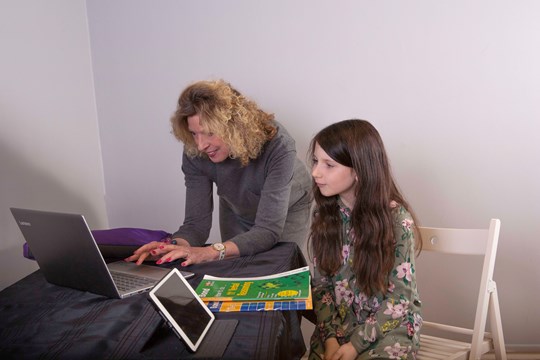Tips for the English element of the 11+ (Kent test) 2022
Key aspects of the Kent test focus on spelling, grammar and comprehension. This short article gives you some points on the kind of thing your child might be tested on during the examto
Published 13 July 2022

The Kent Test (11+)
As an experienced private tutor in Kent, I have coached many children for the entrance exam to grammar schools in Kent and I would say that for the child and their parents, it is one of the most significant times in their school life - to a much greater extent than GCSEs, A levels or even university. Most parents want to give their child the best opportunity possible according to their child's likes, dislikes, ability and emotional well being and whilst I support the grammar school system, I also acknowledge it is not right for every child and many children who either do not sit the exam or do not pass go on to have very successful careers and lives.
However, if your child is going to sit the test whether in September 2022 or 2023, they need to be as well prepared as possible in order to have a good chance of passing and as has always been the case, the verbal and non verbal reasoning elements of the exam are not taught in most schools so either one or both parents have to coach your child in the above areas or pay a professional tutor for guidance and support. your child cannot sit an exam totally blind as to what they will be tested on and this is the system with which we need to work. However, even those subjects that are taught in schools such as Maths and English- there may be elements of their learning that are missing that might be vital for them passing the test.
Over the next few weeks I am going to take each element of the exam; English, Verbal reasoning, Non Verbal reasoning, Spatial reasoning and Maths and the tips I will be sharing will be relevant whether your child is sitting the exam in a couple of months or whether they have the whole of year five to practice.
This article is just about the English element and I have focused on three areas which I have found in my experience to cause most problems and confusion. Apostrophes, Parts of speech and Spelling
Apostrophes
There are only two reasons why an apostrophe is used - one to show possession and the other to indicate missing letters - they are not used for plurals. For example
Possession - the girl's dress - singular form of possession - the dress belonging to the girl
In plural forms of possession, the apostrophe goes after the ‘s’
The girls' dresses - the dresses belong to more than one girl
Parts of speech
This includes nouns, adjectives, verbs, adverbs, pronouns and possessive pronouns - do you know which is which?
Nouns - 4 types, Common, Proper, (year 4) Collective and abstract (tear 5)
Your child should know common nouns such as table and chair etc
Proper nouns are names of people, places and things such as Sally, Kent and England and always have a capital letter
Collective nouns - names for groups of people, things or animals
Bunch of grapes
Pack of wolves
Abstract nouns are the hardest - names for feelings
Joy
Happiness
Kindness
Children get these muddled with adjectives which for the above are joyful, happy and kind e.g. he is kind - these words describe the nouns
Verbs are doing words e.g. running, walking and adverbs describe how this action is done e.g. quickly, slowly
Pronouns
These replace nouns when the meaning in the sentence is clear. for example;-
Susan is excited, as today she is getting a new bicycle and she is going to ride it to the park
Your child might know this implicitly but they need to be able to identify these types of words and know how to use them too.
Your child should know most of these by the end of year 4 or certainly by the beginning of year 5- there are many online resources a well as books on the subject if you feel your child needs some practice in these areas.
Spelling
I have found that this can be a big issue with many children and is it so important - not just for the Kent test but for life in general - too much reliance on computers and spell checks means that sometimes children don't know how to spell everyday words.
Here are some common ones:-
Is it
Separate or seperate?
Neccesary or Necessary?
Accomodation or acommodation or accommodation?
Elegant or elegent?
What is the difference between
Compliment and complement? or stationery and stationary?
These are very common words, but it is surprising how many children cannot spell these words and/or don't know the difference and it is possible that these words may come up in the exam in one come or another
There are lots of online free resources available today - here is just one suggestion - click on the link
https://www.cgpbooks.co.uk/info/preparing-for-the-11-plus-with-cgp/free-11-plus-practice-tests
Next week we will take a look at Verbal Reasoning - happy reading
Rowena Hawtin MSc BSc PGCE
11+ tutor since 2006